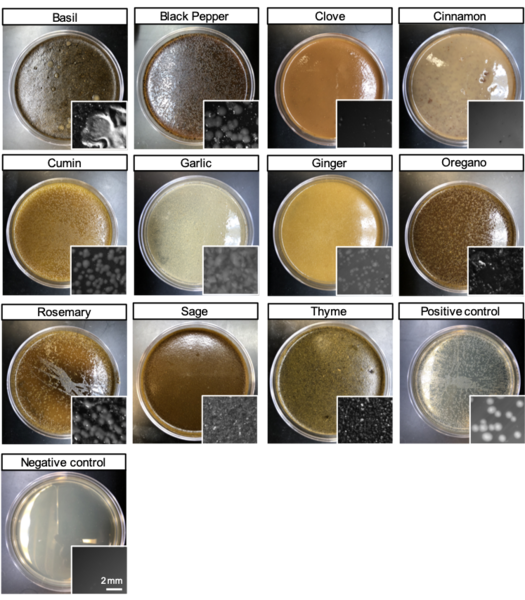Characterization of antibacterial properties of common spices
(1) Medford High School, (2) Harvard Medical School
https://doi.org/10.59720/20-069
Antibiotics have long been trusted by physicians to treat bacterial infections. However, due to their overuse, antibiotic- resistant strains of bacteria now threaten the efficacy of many antibiotic types. We tested if 11 commonly-used spices could inhibit growth of the gram-negative bacteria, E. coli . We chose to test cinnamon, clove, thyme, oregano, cumin, garlic, black pepper, rosemary, basil, and ginger, all which have previously been suggested to have antibiotic properties. When these spices were diluted in LB agar, five spices were effective in inhibiting growth completely: clove, cinnamon, garlic, sage, and thyme. After a second round of experimentation using these spices in liquid LB cultures, the most effective spice at inhibiting growth at a low concentration was clove, with four other spices being nearly as effective. The main takeaway from these experiments is that certain spices and herbs have antibacterial effects that inhibit growth of E.coli , and these spices could show similarly promising activity towards other bacteria.
This article has been tagged with: